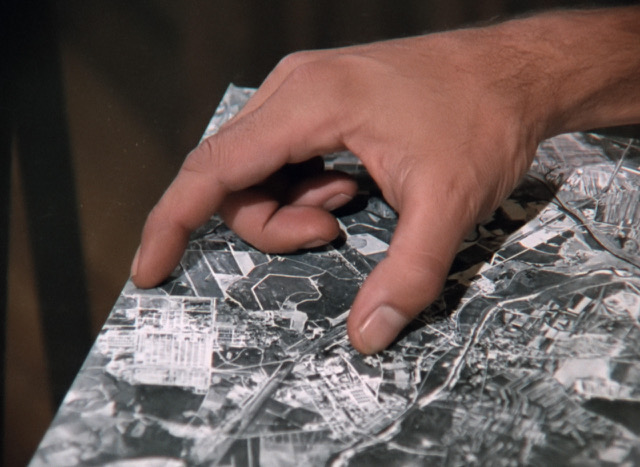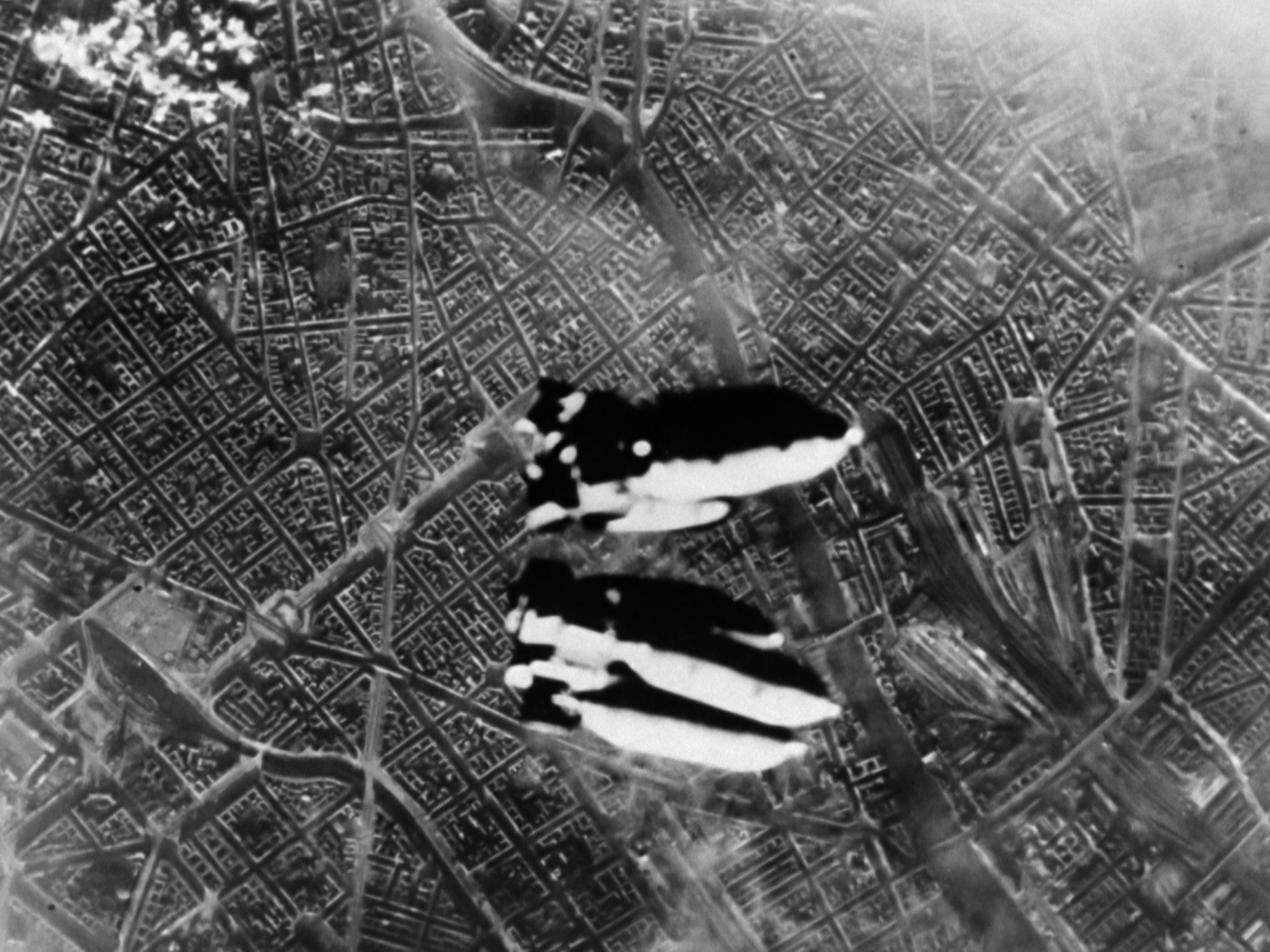On 22 April 2021, Sabzian will host the eighth (online) Milestones screening, presenting Harun Farocki’s Bilder der Welt und Inschrift des Krieges [Images of the World and the Inscription of War] (1989). In this gripping essay, Farocki examines the relationship between war and its representation in images. Looking at images becomes reading images. An image captures a fragment of the world, but can also be at the service of destruction. In Bilder der Welt, this dialectic between preservation and destruction is central.
On 21 April 2021, Sabzian will publish several texts on the film. On the evening of the screening, an introduction to the film by Hannes Verhoustraete will be posted on Sabzian. The film will be available on Sabzian, free of charge, worldwide. The presentation of Bilder der Welt is part of a series of four online Milestones screenings hosted by Sabzian. The film and introduction will be available on Sabzian’s home page.
Harun Farocki (1944-2014) was born as Harun El Usman Faroqhi to a German-Indian family in what is now the Czech Republic. From 1966 to 1968, he studied at the Deutsche Film- und Fernsehakademie Berlin. Between 1974 and 1984, he worked as an editor at the film magazine Filmkritik. He taught at the University of California, Berkeley and later at the art academy of Vienna. He published many articles and reviews, and collaborated with his partner Antje Ehmann on publications, books and exhibitions. His work includes a large number of radio broadcasts, video installations, and more than a hundred films, many of which were made for television. His video work is diverse, although he is best known for essay films such as Zum Vergleich [In Comparison] (2009), Ich glaubte Gefangene zu sehen [I Thought I Was Seeing Convicts] (2004), Auge/Maschine I-III [Eye/Machine I-III] (2001-2003), Arbeiter verlassen die Fabrik [Workers Leaving the Factory] (1995), Bilder der Welt und Inschrift des Krieges (1989) and Nicht löschbares Feuer [The Inextinguishable Fire] (1969). They are often films that are made from existing images, radiating a certain “neutrality”. Farocki’s montage frames the images – generated by instruments of observation, imagination and simulation – in an industrial-military-complex context. Many of his works address the relationship between warfare, capitalism, and representation. His oeuvre expresses a unique vision in which technical images or simulations, photography and cinema are set alongside so-called “reality”.

Milestones is a series of stand-alone screenings, hosted by Sabzian, of film-history milestones, reference works or landmarks, films that focus on aesthetic or political issues and stimulate debate and reflection. In earlier instalments, Sabzian presented Andy Warhol’s Sleep (1964), Jean-Luc Godard’s monumental video work Histoire(s) du cinéma (1988-1998), Robert Kramer’s Milestones (1974), Méditerranée (1963) and L’ordre (1973), two films by Jean-Daniel Pollet and recently Shadi Abdel Salam’s Al-mummia (1969), Georges Rouquier’s Farrebique ou les quatres saisons (1946) and Al Dhakira al Khasba [Fertile Memory] (Michel Khleifi, 1980). For each screening, Sabzian publishes texts that contextualize the film.
With the support of the Flemish government

